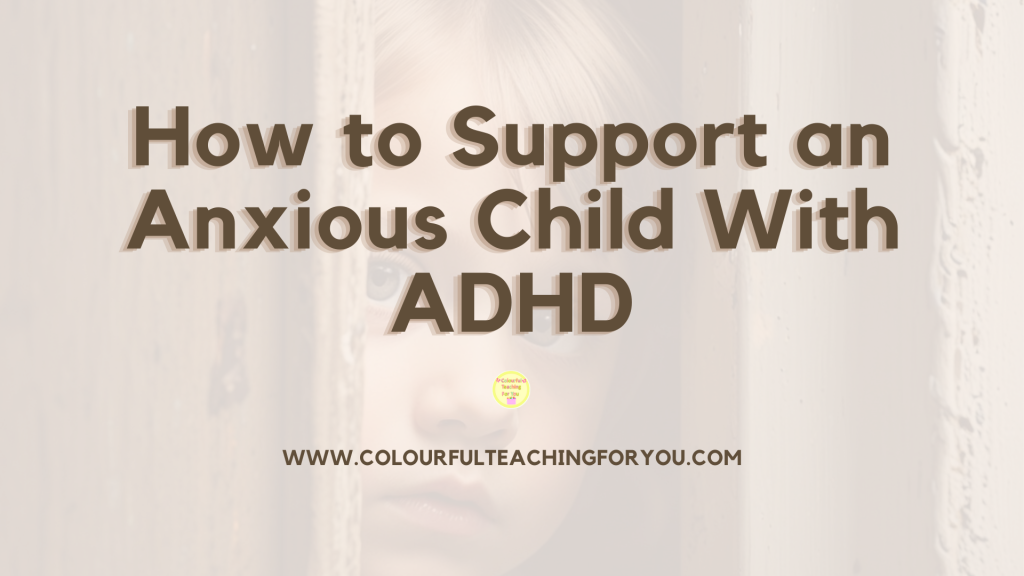Many children with ADHD also have anxiety. If your child has this combination, it’s important to support them because it can make it harder for them to feel understood and safe with this combination.
Having ADHD is not easy for any child, let alone for a child having anxiety as well because it causes children to overthink, worry and doubt themselves more than usual, especially when they are uncertain or when they feel that they are failing. Without support, they are at a high risk of struggling academically and socially, and it causes low self-esteem.
When we emotionally support our children, they feel safe to explore new concepts or struggles, and express their emotions. It also builds their ability to emotionally self-regulate, and it shows them that they can achieve more than they thought possible for themselves.
The following are four ways to support your anxious child with ADHD.
Actionable Steps:
#1. Watch For Signs
Know when your child exhibits signs of anxiety. For example, are they complaining of a stomach-ache or a headache, are they having a meltdown or exhibiting avoidance behavior? If so, look at what’s causing the issues, and depending on the situation, either help them avoid or overcome it.
#2. Embrace Predictability
Create a visual schedule and turn it into a predictable routine. This will help reduce your child’s anxiety level because they’ll know what’s expected of them and won’t always have to worry about what happens next.
If you want a visual schedule that’s already made for you, CLICK HERE or on the following image.
#3. Teach Coping Skills
Teach your children about the importance of deep breathing and other grounding activities to help calm down their nerves. Then create a safe space for them to manage their emotions.
Join me in ADHD and Autism Self Regulation by CLICKING HERE or on the fallowing image and I’ll show you how to do all of this in a step-by-step format.
#4. Validate Feelings
Show your children that you are on their side and that you support them by being there for them. You don’t need to fix their problems but actively listen to them. Let them know that it’s okay for them to have big feelings because we all have them. In fact, when it’s appropriate and when you feel nervous, scared or any other emotion, let your children know about it so that you can normalize it.
Recap:
Let’s recap really quickly. Today, we looked at the following:
- The importance of caring for your child with ADHD and anxiety.
- Four ways to support your anxious child with ADHD: watch for signs, embrace predictability, teach coping skills, and validate feelings.
Free Resources:
For a taste of the resources that were mentioned in step two, check out the following resource in my FREE Education Resource Library.
Teach your little ones how to make good choices with the following FREE Resource:
Next Steps:
If you found this video beneficial, would you do me a favor? Share this with your family, your friends, your loved ones, your co-workers or someone who you think could benefit from this. Thank you!
I’ll see you next Friday at 5:30pm PST.
Until I see you next time, remember to create, experience & teach from the heart.
Take care,
Charlotte
Disclaimer: I’m a teacher and a parent. I’m not a medical professional, so please don’t take this as medical advice. The advice that I provide in my videos and online are strategies that I have used in my own class or at home that have worked beautifully.




